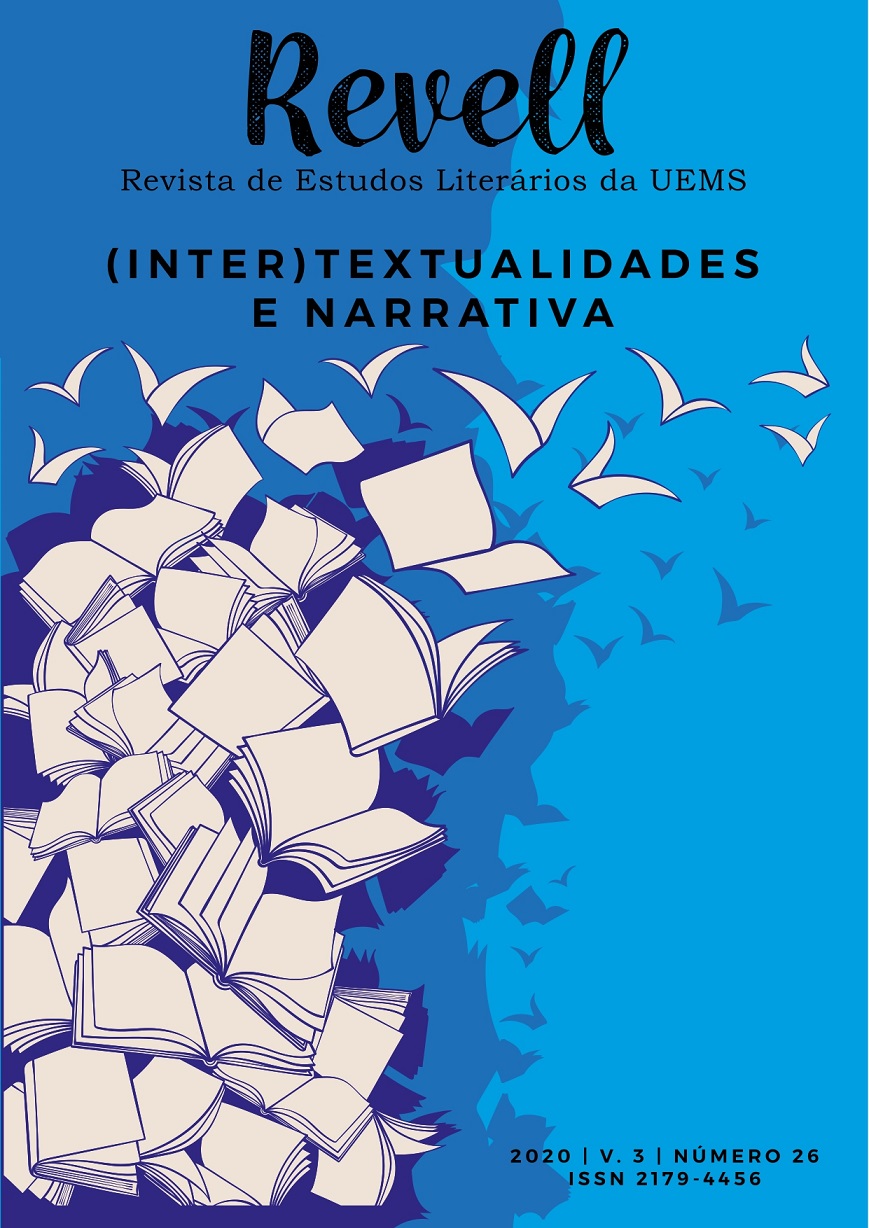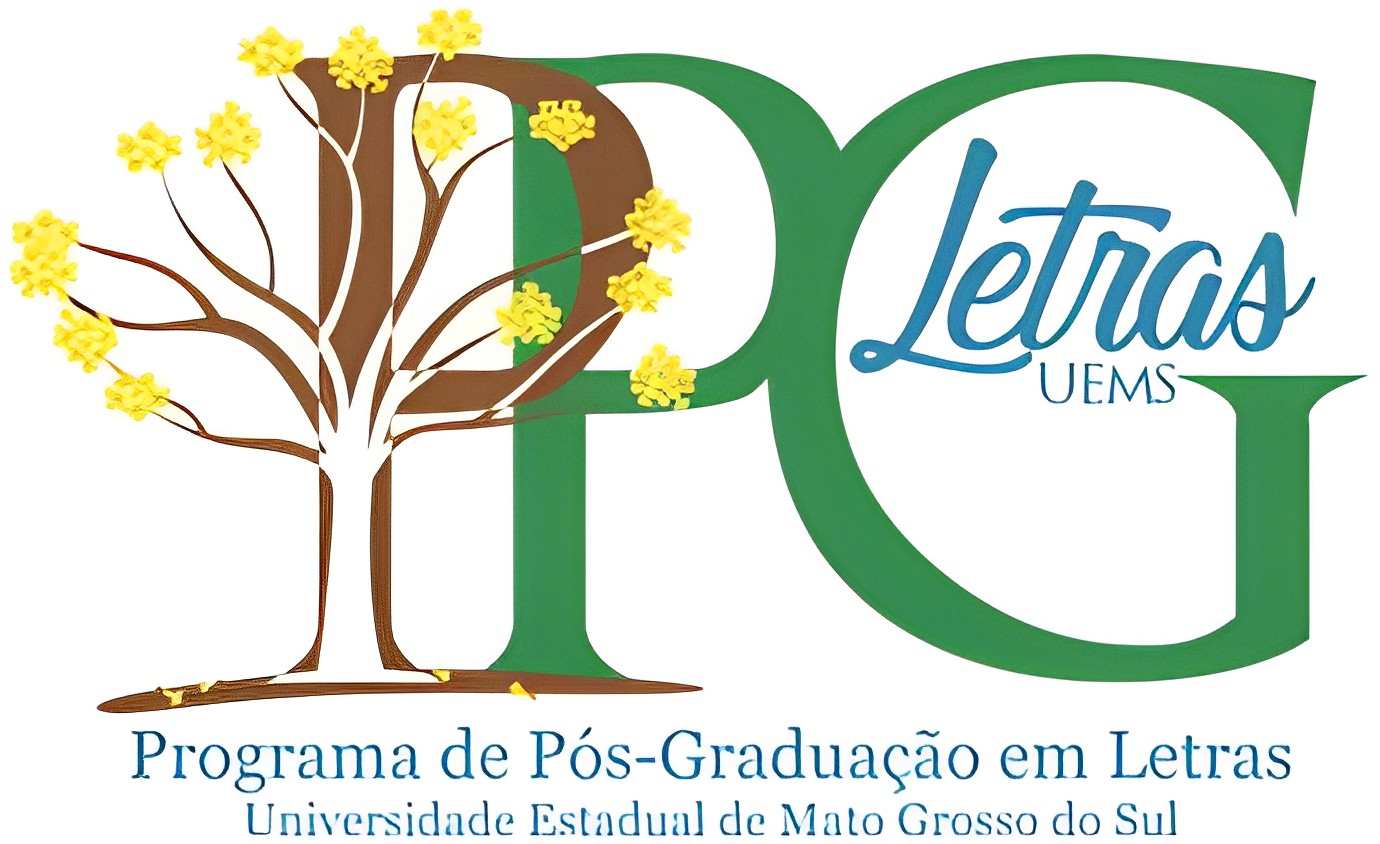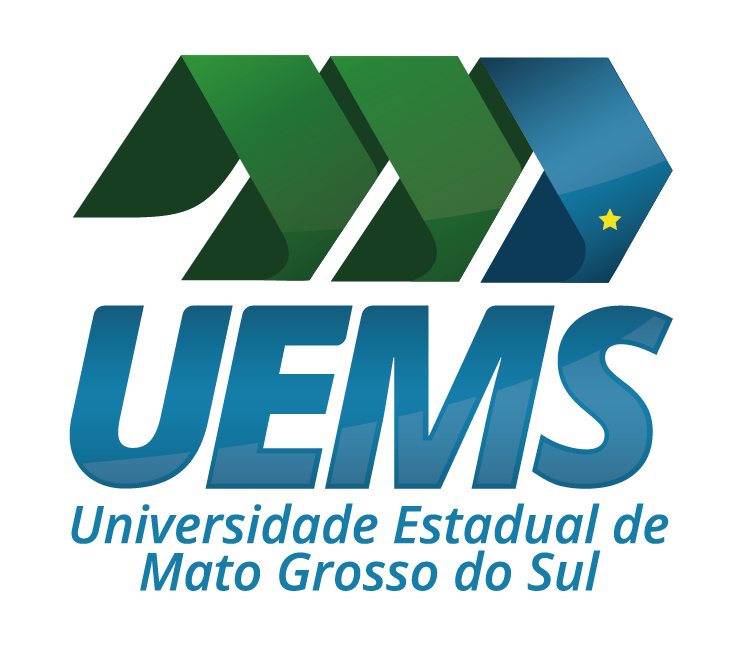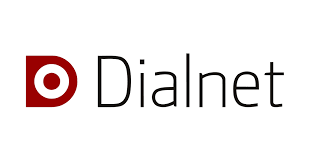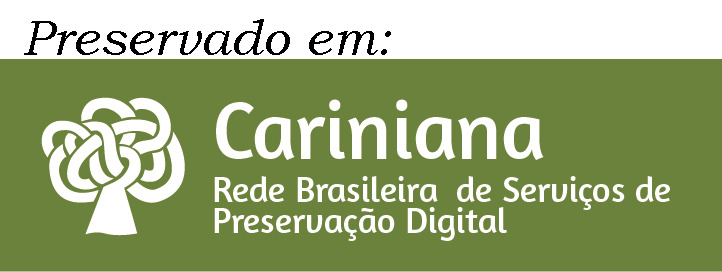Um cão na terra devastada: os laços intertextuais de Dogmeat no mundo possível e não natural de Fallout
Palavras-chave:
Intertextualidade, mundos possíveis, narrativa não natural, videogame, Fallout.Resumo
As relações de companheirismo entre pessoas e animais são recorrentes na ficção, seja no cinema, seja na literatura. Logo, pensar nesses relacionamentos é debater formas particulares das vivências humanas. Este artigo abordou os laços intertextuais da personagem Dogmeat, um cão presente na franquia de videogames Fallout, com a novela A Boy and His Dog e com o filme Mad Max 2, bem como a construção de uma narrativa não natural e de mundos possíveis no universo de Fallout. Para tanto, foram empregados aspectos teóricos dos estudos de intertextualidade, mundos possíveis e narrativa não natural, assim como questões referentes à ideia de espécies companheiras e aos conceitos dos estudos de videogame.
Referências
ALBER, Jan. Unnatural narrative: impossible worlds in fiction and drama. Lincoln: University of Nebraska Press, 2016.
ALBER, Jan. Unnatural narrative. 2014. In: HÜHN, Peter et al. (ed.). the living handbook of narratology. Hamburg: Hamburg University. Disponível em: http://www.lhn.unihamburg.de/article/unnatural-narrative. Acesso em: 10 dez. 2019.
ALLEN, Graham. Intertextuality. London: Routledge, 2000.
BAUM, L. Frank. The Wonderful Wizard of Oz. Chicago: George M. Hill Company, 1900.
BETHESDA Game Studios. Fallout 4 [Microsoft Windows, PlayStation 4, Xbox One]. Estados Unidos: Bethesda Softworks, 2015.
BETHESDA Game Studios. Fallout 3 [Microsoft Windows, PlayStation 3, Xbox 360]. Estados Unidos: Bethesda Softworks, 2008.
BLACK Isle Studios. Fallout 2 [Microsoft Windows, Mac OS]. Estados Unidos: Interplay Entertainment, 1998.
BLACK Isle Studios. Fallout [MS-DOS, Microsoft Windows, Mac OS, Mac OS X]. Estados Unidos: Interplay Entertainment, 1997.
ECO, Umberto. Semiótica e filosofia da linguagem. São Paulo: Ática, 1991.
ECO, Umberto. The role of the reader: explorations in the semiotics of texts. Bloomington: Indiana University Press, 1984.
ELLISON, Harlan. A boy and his dog. New York: Open Road Media Sci-Fi Fantasy, 2016.
FANDOM. In: CAMBRIDGE Dictionary. Disponível em: https://dictionary.cambridge.org/pt/dicionario/ingles/fandom. Acesso em: 5 dez. 2019.
GENETTE, Gérard. Palimpsests: literature in the second degree. Trad. Channa Newman e Claude Doubinsky. Lincoln: University of Nebraska Press, 1997.
HARAWAY, Donna. The companion species manifesto: dogs, people, and significant otherness. Chicago: Prickly Paradigm Press, 2003.
HOMERO. Ilíada. Trad. Manoel Odorico Mendes. São Paulo: Montecristo Editora, 2013.
HUMANIDADE. In: MICHAELIS. São Paulo: Melhoramentos, 2015. Disponível em: https://michaelis.uol.com.br/moderno-portugues/busca/portugues-brasileiro/humanidade/ . Acesso em: 10 dez. 2019.
JANNIDIS, Fotis. Character. 2013. In: HÜHN, Peter et al. (ed.). the living handbook of narratology. Hamburg: Hamburg University. Disponível em: http://www.lhn.uni-hamburg.de/article/character. Acesso em: 11 dez. 2019.
KNIGHT, Eric. Lassie come-home. New York: John C. Winston Company, 1940.
KRISTEVA, Julia. Revolution in poetic language. New York: Columbia University Press, 1984.
LEWIS, David. Truth in Fiction. American Philosophical Quarterly, v. 15, n.1, p. 37–46, 1978. Disponível em: https://www.jstor.org/stable/20009693?seq=1. Acesso em: 9 dez. 2019.
MAD Max 2. Direção: George Millher. Produção: Byron Kennedy. Intérpretes: Mel Gibson, Bruce Spence, Vernon Wells et al. Roteiro: George Miller, Terry Hayes, Brian Hannant. [S. l.]: Kennedy Miller Productions, 1981. 96 min, son., color., 35 mm.
MATHESON, Richard. Eu sou a lenda. Trad. Delfin. São Paulo: Aleph, 2015.
MAZA, Antonio José Planells de la. Possible worlds in video games: from classic narrative to meaningful actions. Pittsburgh: ETC Press, 2017.
MAZA, Antonio José Planells de la. O poder expressivo da teoria dos mundos possíveis nos videojogos: quando as narrações se convertem em espaços interactivos e fictícios. Comunicação e Sociedade, Braga, v. 27, p. 273-287, jun. 2015. Disponível em: http://www.scielo.mec.pt/scielo.php?script=sci_arttext&pid=S2183-35752015000100009&lng=pt&nrm=iso. Acesso em: 5 dez. 2019.
MELBYE, David. Landscape allegory in cinema: from wilderness to wasteland. New York: Palgrave Macmillan, 2010.
MURRAY, Janet H. Hamlet on the holodeck: the future of narrative in cyberspace. Cambridge: MIT, 1997.
REIS, Carlos. Pessoas de livro. 3. ed. Coimbra: Imprensa da Universidade de Coimbra, 2018.
RONEN, Ruth. Possible worlds in literary theory. Cambridge: Cambridge University Press, 1994.
ROWLING, J. K. Harry Potter and the Philosopher’s Stone. London: Bloomsbury, 1997.
RYAN, Marie-Laure. Possible Worlds. 2013. In: HÜHN, Peter et al. (ed.). the living
handbook of narratology. Hamburg: Hamburg University. Disponível em: http://www.lhn.uni-hamburg.de/article/possible-worlds. Acesso em: 5 dez. 2019.
RYAN, Marie-Laure. Possible worlds, artificial intelligence and narrative
theory. Bloomington: University of Indiana Press, 1991.
SEED, David. A companion to science fiction. Oxford: Blackwell Publishing, 2005.
SAINT-GELAIS, Ricard. Transfictionality. In: Herman, David; Jahn, Manfred; RYAN, Marie-Laure [eds.]. The Routledge encyclopedia of narrative theory. London: Routledge, 2005. p. 612-13.
SICART, Miguel. Defining Game Mechanics. Game Studies, vol. 8, n. 2, dez. 2008. Disponível em: http://gamestudies.org/0802/articles/sicart. Acesso em: 7 dez. 2019.
WASTELAND. In: LACY, Norris J. (ed.). The New Arthurian Encyclopedia. New York: Garland Publishing, Inc., 1996.
Downloads
Publicado
Como Citar
Edição
Seção
Licença
DECLARAÇÃO DE ORIGINALIDADE E EXCLUSIVIDADE E CESSÃO DE DIREITOS AUTORAIS
Declaro que o presente artigo é original e não foi submetido à publicação em qualquer outro periódico nacional ou internacional, quer seja em parte ou na íntegra. Declaro, ainda, que após publicado pela REVELL, ele jamais será submetido a outro periódico. Também tenho ciência que a submissão dos originais à REVELL - Revista de Estudos Literários da UEMS implica transferência dos direitos autorais da publicação digital. A não observância desse compromisso submeterá o infrator a sanções e penas previstas na Lei de Proteção de Direitos Autorais (nº 9610, de 19/02/98).

